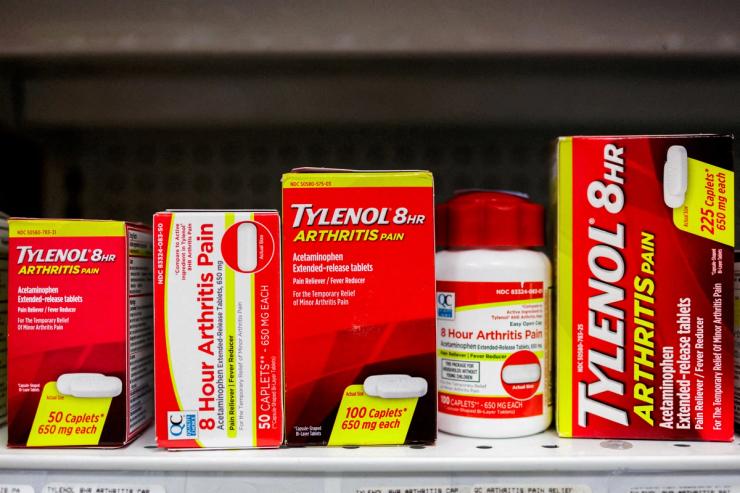The News
Kimberly-Clark’s $49 billion deal for Tylenol and Band-Aid maker Kenvue will be a test of whether corporate America’s renewed taste for takeovers can withstand the whims of the White House.
Investors are skeptical that the merger will get past President Donald Trump, who has seized onto the idea, rejected by many scientists, that Tylenol is dangerous for pregnant women. The state of Texas sued Kenvue last week, accusing the company of deceptively marketing the painkiller as safe.
Kenvue’s advisors feel that investors are overestimating the risk of litigation stemming from the president’s remarks, noting that Health and Human Services Secretary Robert F. Kennedy has already begun to walk back his comments on the drug (Trump, on the other hand, is doubling down.)
Shares of Kenvue, which has had a tough run as a public company since spinning off from Johnson & Johnson in 2023, are trading well below the agreed price, a sign that shareholders either don’t think the deal will be completed or aren’t prepared to stick around and find out. Shares of Kimberly-Clark, whose own investors will also have to approve the deal, fell 13% midday Monday, at least partly on concerns about potential liability from Tylenol litigation.
Regulators in Europe and China will also have to sign off, raising concerns that the deal could become another bargaining chip in tense global relations. Both companies believe traditional antitrust approval won’t be too difficult, given that the companies have little overlap, mostly in feminine care.
Trump’s pressure already shaped the deal: Kimberly-Clark lowered the offering price after the president’s White House press conference in September, a person familiar with the negotiations said.
In this article:
Know More
Merger activity is up, particularly among big companies this year. September megadeal volume increased 80% year-over-year, across an array of sectors, according to EY. The Kenvue deal was one of three $5 billion-plus acquisitions announced Monday, alongside a $13 billion merger between energy companies Civitas and SM Energy, and a $7 billion mining tie-up.
Kimberly-Clark, best known as a maker of Kleenex and Huggies, is paying $3.50 in cash and roughly .15 of its own shares per share of Kenvue, which also sells Neutrogena and Listerine. The paper price is 46% higher than Kenvue’s closing price on Friday, but barely above where it was trading prior to Trump’s Oval Office press conference in September. The deal would create a competitor to Procter & Gamble in cutting across grocery and drugstore aisles.
Rohan’s view
Kimberly-Clark said it hired “some of the world’s foremost scientific, regulatory, legal and other experts” to prepare its bid, and appears comfortable with the risk from any Tylenol litigation.
But as the past 10 months have shown, experts aren’t necessarily skilled at navigating the new Washington. See Intel, whose advisors were shocked when the President initially took aim at CEO Lip-Bu Tan. Trump’s attack on Kenvue’s flagship product, which appeared to unnerve even some of his science advisors, was — in a world that’s nearly lost its usefulness — unprecedented. And the president is sensitive to anything that would raise prices for consumers (beyond the impact of tariffs, which his administration has tried to downplay.) His Justice Department hasn’t challenged a big merger in court yet, but this is a juicy target.
Room for Disagreement
Trump can be lobbied and a combination of Kimberly-Clark and Kenvue combination is the kind of blockbuster M&A that appeals to his dealmaking sensibilities. If all else fails, gaining his approval is sometimes as simple as making the right donation.


